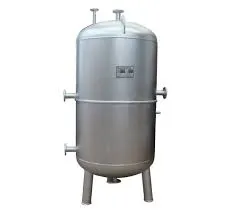steam boiler industrial factory
The Role of Steam Boilers in Industrial Factories
Steam boilers play a crucial role in industrial factories, serving as essential equipment for generating steam used in various manufacturing processes. From food production to chemical manufacturing, steam boilers provide the necessary heat and power that drive a multitude of operations. Understanding the importance of these machines in an industrial setting is key to appreciating their contribution to the economy and efficiency of modern manufacturing.
What is a Steam Boiler?
A steam boiler is a closed vessel that heats water to convert it into steam. This process occurs through the combustion of a fuel source, such as natural gas, oil, or coal. The generated steam can then be used for heating, power generation, or as a heat transfer medium in various industrial applications. Boilers are classified into different types, including fire-tube boilers, water-tube boilers, and electric boilers, each with its own advantages and applications.
Importance of Steam Boilers in Industry
1. Efficiency and Reliability One of the key advantages of steam boilers is their efficiency. When properly maintained, these systems can provide a continuous supply of steam, essential for manufacturing processes that rely on consistent temperature and pressure control. In industries such as paper and pulp, textile manufacturing, and food processing, efficient steam production can significantly enhance productivity.
2. Process Heating Many industrial processes require heat for sterilization, cooking, and chemical reactions. Steam boilers can deliver the required heat precisely and quickly. For instance, in the pharmaceutical industry, steam is utilized for sterilizing equipment, ensuring product safety and compliance with health regulations.
3. Power Generation In addition to providing heat, steam boilers are integral in generating electricity in power plants. The steam produced can drive turbines that convert thermal energy into mechanical energy, contributing to the electrical power needed for factory operations and local grids.
4. Eco-Friendly Options With the growing emphasis on sustainability, modern steam boilers have incorporated energy-efficient technologies and environmentally friendly practices. Biomass, for example, has emerged as a renewable fuel source for steam generation, assisting factories in reducing their carbon footprint while meeting energy demands.
steam boiler industrial factory

5. Cost-Effectiveness Despite the initial investment in steam boiler systems, their long-term operational efficiency can lead to significant cost savings. With advancements in technology, newer models are designed to minimize fuel consumption and reduce maintenance costs. This aspect makes steam boilers an economically viable option for many industries.
Considerations for Industrial Factories
When integrating steam boilers into industrial operations, several factors must be considered to ensure optimal performance
1. Size and Capacity The choice of steam boiler depends on the specific needs of the factory. Factors such as the scale of production, required steam pressure, and operation hours should guide the selection process to ensure that the boiler can meet operational demands.
2. Maintenance Regular maintenance is vital for the longevity and efficiency of steam boilers. Implementing a routine check-up schedule can prevent unexpected breakdowns and optimize performance. Maintenance tasks include checking pressure levels, inspecting heating surfaces, and ensuring safety devices are functional.
3. Safety Protocols Given the high-pressure nature of steam systems, safety is paramount. Factories must adhere to stringent codes and regulations, implementing safety features such as blow-off valves and water level monitoring systems to prevent accidents and ensure safe operation.
4. Training Personnel Operating a steam boiler requires skilled personnel who understand the intricacies of the system. Investing in training for staff not only promotes safety but also enhances operational efficiency.
Conclusion
Steam boilers are an indispensable component of industrial factories, supporting various processes through efficient and reliable steam generation. As industries evolve and strive for increased efficiency and sustainability, the importance of advanced steam boiler systems is only expected to grow. By embracing modern technologies and prioritizing safety and maintenance, factories can leverage the power of steam to boost productivity and contribute to a greener future.
-
Industrial Steam Boiler Corporation - Reliable Industrial Boiler Manufacturer & SupplierNewsJul.08,2025
-
High-Efficiency Steam Boiler Heat Exchanger Supplier & Factory Durable Products for IndustryNewsJul.08,2025
-
Premium Electric Steam Boiler Manufacturer Reliable Company & Factory SolutionsNewsJul.08,2025
-
Commercial Hot Water Boiler - Reliable Supplier & Factory Direct Price for Efficient Heating SolutionsNewsJul.07,2025
-
Top Hot Oil Boiler Manufacturer - Reliable Thermal Oil & Coal Fired Boiler Manufacturer ManufacturerNewsJul.07,2025
-
High-Efficiency Hotel Hot Water Boiler – Leading Exporters & Quotes for HotelsNewsJul.07,2025

